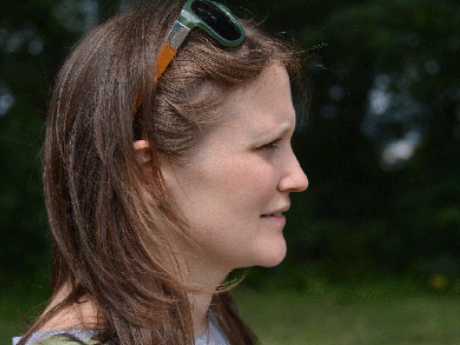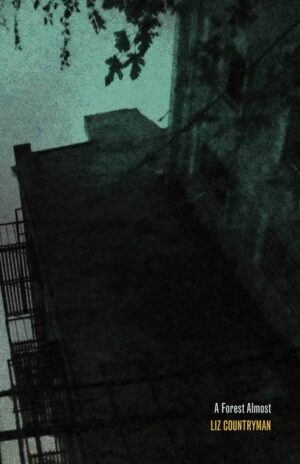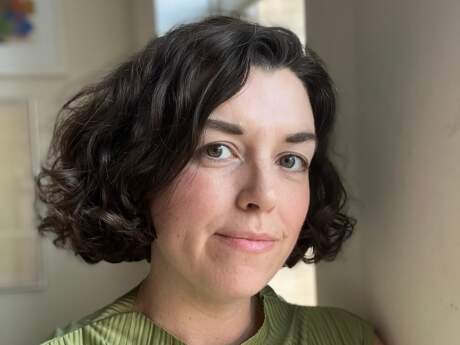In Their Own Words
Liz Countryman on “Fireworks Phobia Formation”

Fireworks Phobia Formation
Fear deep and joy up over:
dark July forenight.
Shiver sweat not dark but unseen
exploded over the suburban ball.
Come get me, I'm making myself
ready for you every day, Lord,
like they say all these people
here are doing.
This place reminds me of something.
A door opens behind me and I know who it is.
Sitting here's like saying yes—
All it need do is ask me to touch its arm
at the moment before ignition, when we're held in expecting:
I know and it knows
me, and a detonation.
Each pair of eyes
follows its story off.
Take a look at me! I have a beautiful arc!
We were together, and we cared about something—
long sheen of a hospital hallway,
spray of islands violent on an ocean,
the light spilled sidewise and the land dried.
The day with its barely open eyelid.
Probably what they lost they lost
fantastically
—it didn't just hang there.
They watched it,
not the other way around.
I am an attempt to be clear
while burning out
something almost said the incorrect way.
Every time I touch your hand
and every time your hand
falls on my hair too hard.
It's a draft I discard.
Back in Mom's lap,
I guess I hid because
they were fake, the flashes.
What reactions from the pleased picnickers.
What a nightmare.
So I'm on the ground
and in the sky and the sky
of me explodes and the ground cowers.
Or does the window of me look in
jealously at my hearth?
Or does the rainforest of me seem not like eco-wonder?
Wave of me pulled out on waves?
Grass is dumb, and waves don't care.
From A Forest Almost (Subito Press, 2017). All rights reserved. Reprinted with the permission of the author.
On "Fireworks Phobia Formation"
I've always been scared of fireworks. As a kid, like many other kids in suburban New Jersey, I went with my family to the local park on the fourth of July to sit in a lake of seated people and watch the explosions. When I was very little, my mother tells me, I was so scared that my flesh practically melted into hers. When I was older, I kept quieter; feeling uneasy but seeing the calm spectators' pleasure around me, I experienced the fourth of July as a powerful juxtaposition of tone. Visually, the fireworks were far off, flashy, and picturesque, but their sound shook us with a simulated danger. The strangeness of that simulation scared me as much as the noise. And there was the falling ash we were supposed to ignore.
This poem's movement is fueled by that odd combination of urgency and ease and by my discomfort with spectacle, which I tried, at the time, to hide. The poem is built of sections that hop around in time and place. Sometimes there are sudden statements, little bursts—fun or scary? As a kid, there were times when I loved the happy meanings of things and other times when I felt a little flattened by honored narratives. At the end of this poem, when the fireworks clear, to see nature as indifferent is a harrowing kind of relief.



